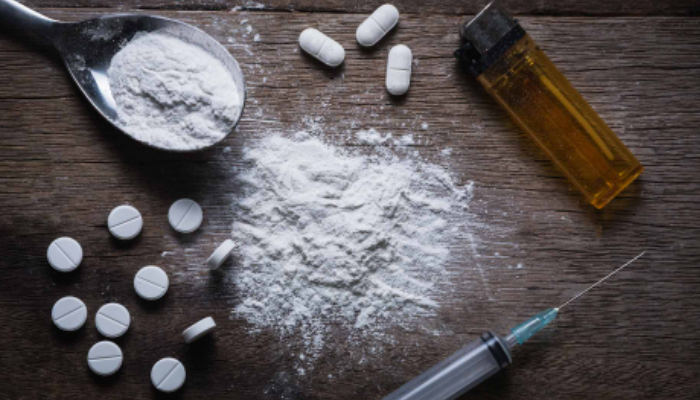
Introduction: Kerala Faces a Rising Drug Epidemic
Kerala, once a beacon of peace and prosperity, is now grappling with a severe drug crisis that is spiraling out of control. The state’s situation has become so alarming that it could surpass even Punjab’s longstanding issues with narcotics. Synthetic drugs are infiltrating schools and homes, fueling violence and addiction. The growing drug problem in Kerala demands urgent attention, as narcotic abuse continues to spread across the state, affecting its youth and communities.
Rising Drug Cases in Kerala: A Stark Reality
In 2025, Kerala registered over 1,999 narcotic-related cases within just the first month. Between 2021 and 2024, Kerala witnessed a staggering 330% increase in drug-related offenses. In 2024, the state reported 24,517 cases under the Narcotic Drugs and Psychotropic Substances (NDPS) Act. For comparison, Punjab registered 9,734 cases in the same year. The numbers underscore the growing scale of the crisis and highlight the urgent need for a comprehensive response.
The Shift to Synthetic Drugs: A Dangerous Trend
Synthetic drugs like MDMA (Ecstasy) and methamphetamine have emerged as the primary substances fueling the epidemic in Kerala. These drugs are now widespread across the state, replacing traditional substances like cannabis. MDMA use, in particular, has risen by more than 65% in the past year. Kerala’s proximity to major drug distribution hubs such as Bengaluru and Chennai, coupled with its vulnerable coastline, makes it a hotspot for drug trafficking.
Drug Gangs and New Tactics: How Narcotics Are Delivered
Drug cartels in Kerala are increasingly using sophisticated methods to distribute narcotics. Superbike couriers, often young individuals between 18 and 24, deliver drugs quickly and discreetly across the state. These gangs are now offering door-to-door delivery services, which have become a competitive market. Transactions are often faceless, taking place through the dark web, where cryptocurrencies like Bitcoin are used to facilitate deals, making it harder for authorities to track.
The Growing Drug-Fueled Violence in Kerala
The rise in drug abuse has been accompanied by an increase in violence. Drug-induced aggression is wreaking havoc in families and communities. There have been multiple cases of drug-fueled violence, including a son killing his mother under the influence of drugs and teenagers committing murder over drug-related disputes. Kerala is witnessing an alarming rise in violent incidents tied to narcotic abuse, with cases of domestic violence, assaults on teachers, and even attacks on police officers.
The Impact on Kerala’s Schools: A Surge in Drug Abuse Among Students
Kerala’s schools have not been spared from this crisis. Drug abuse among students has skyrocketed, with many educational institutions becoming hotspots for drug-related activities. Drugs are now available in forms as innocent as candies and ice creams. As a result, drug test kits are flying off the shelves, as parents increasingly seek ways to monitor their children’s drug use. The alarming rise in student drug abuse has led to intense discussions in the Kerala Assembly and Parliament, as lawmakers struggle to cope with the crisis.
Dark Web and Cryptocurrency: Facilitating the Drug Trade
The dark web and cryptocurrencies have played a significant role in Kerala’s drug crisis. These digital platforms enable anonymous transactions and have made it easier for drug cartels to operate without detection. Kerala’s drug trade has gone global, with substances being shipped from countries like Germany, France, and Thailand. Despite efforts by local law enforcement, these faceless transactions continue to fuel the state’s drug problem.
Government Response: The Fight Against Kerala’s Drug Menace
While the Kerala government, led by Chief Minister Pinarayi Vijayan, claims a high conviction rate in drug-related cases, experts argue that this is not enough to tackle the root causes of drug abuse. Kerala’s current anti-drug measures have focused on output rather than outcomes, and the state needs a more transformative approach to combat the growing epidemic. Opponents of the government’s strategy believe that the rising drug abuse rates highlight the failure of the existing policies.
The Social and Economic Factors Driving the Crisis
Experts argue that the increasing drug use in Kerala is not just a result of external factors but also internal social and economic issues. A lack of job opportunities, insufficient educational outlets, and rising aspirations among youth have created a perfect storm for drug abuse. With a high unemployment rate and a growing sense of disillusionment, many young people turn to drugs as a form of escape.
A Call for Action: The Need for a “War on Drugs” in Kerala
Prominent figures like Shashi Tharoor, the Congress MP from Thiruvananthapuram, have called for a “war on drugs” in Kerala. He argues that the government’s response has been insufficient, and more urgent and drastic action is needed. Experts, including former UN officials, emphasize the need for a multi-sectoral approach, with a stronger focus on rehabilitation, education, and community-based interventions.
Conclusion: Tackling Kerala’s Drug Crisis Requires Comprehensive Action
The growing drug crisis in Kerala is a clear indication of the need for comprehensive and sustainable solutions. Authorities must focus not only on law enforcement but also on addressing the underlying social factors that contribute to drug abuse. Kerala’s government must take immediate and concrete steps to prevent further damage to its youth and communities. The state needs a holistic approach to fight the drug epidemic and restore its reputation as a model for development and social harmony.
